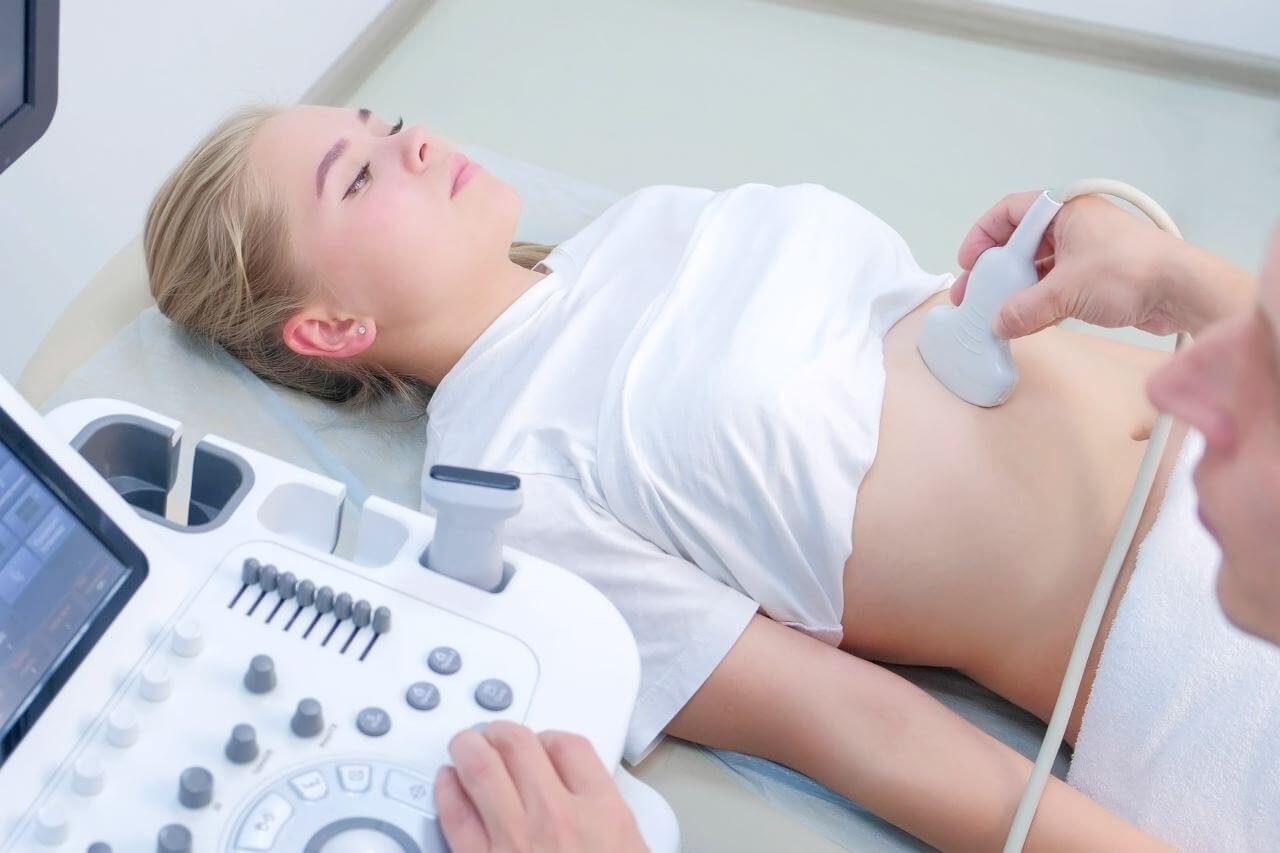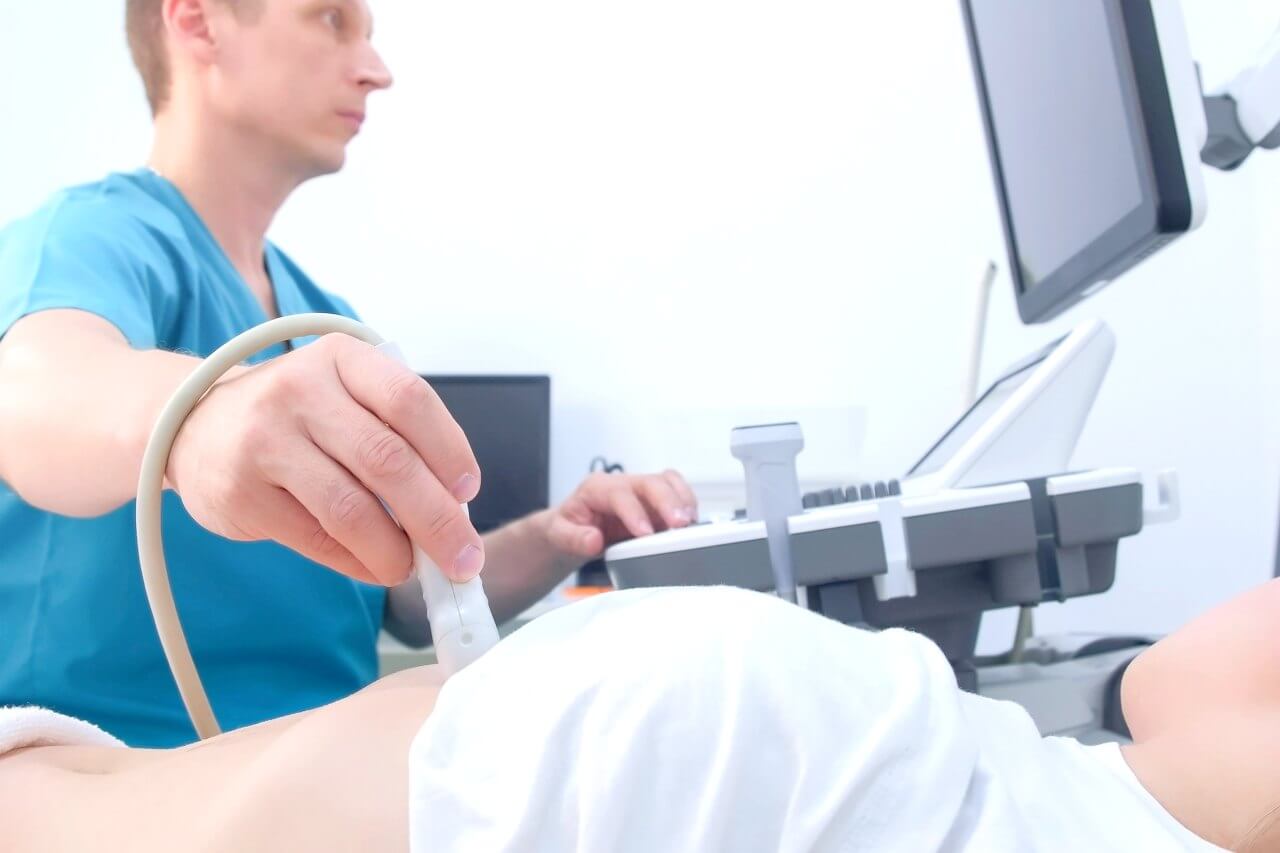
The program includes:
- Initial presentation in the clinic
- clinical history taking
- physical examination
- laboratory tests:
- complete blood count
- general urine analysis
- liver metabolism indicators (ALT, AST, gGT,
bilirubin detected (urine and blood), cholesterin) - hepatitis serology
- tumor markers (CEA, CA19-9, AFP)
- inflammation markers (CRP, ESR)
- blood coagulation analysis (aPTT, PT, INR)
- ultrasound of the abdomen
- liver fibroscan
- CT/MRI of the abdomen
- differential diagnostics with other liver diseases
- endosongraphy
- gastroscopy
- consultation of related specialists
- symptomatic specific treatment
- the cost of essential medicines and materials
- nursing services
- control examinations
- full hospital accommodation
- developing of further guidance
Required documents
- Medical records
- Abdominal ultrasound (if available)
- Abdominal MRI/CT scan (if available)
Service
You may also book:
 BookingHealth Price from:
BookingHealth Price from:
About the department
The Department of Hepatology at the Liver Center Munich offers the full range of medical services in its area of competence. The department carries out high-precision diagnostic examinations and comprehensive treatment for liver diseases. The key area of specialization for doctors at the healthcare facility is medical care for patients with chronic liver pathologies. Great importance is also attached to performing preventive examinations for the early detection of liver pathology, which allows for the timely initiation of treatment. The department's team of doctors is responsible for caring for patients before and after liver transplant surgery. The department uses various drug therapy regimens with the latest generation of drugs for the treatment of liver diseases. An integral part of the therapeutic process is lifestyle modification, in particular avoiding alcohol and following a diet. The focus of the department's medical team is the patient and his or her individual needs. The goal of the specialists is to restore the patient's health and improve their quality of life.
The department is headed by Prof. Dr. med. Maria-Christina Jung, who has worked for a long time at the University Hospital of Ludwig Maximilian University of Munich, one of the leading medical complexes in Germany. Prof. Maria-Christina Jung is widely known in professional medical circles and is one of the best hepatologists in Europe.
The department's doctors regularly diagnose and treat patients with viral hepatitis. The specialists most often deal with hepatitis B and C. The diagnostic process for suspected hepatitis begins with an individual consultation, during which the doctor listens to the patient's complaints and conducts a clinical examination. Next, the specialist proceeds to laboratory and instrumental diagnostics, such as blood tests, urinalysis, abdominal ultrasound scans, and liver elastography. Should the diagnosis be confirmed, the department's doctors will begin to develop an optimal treatment regimen based on drug therapy. Depending on the clinical situation, the patient may be prescribed antiviral drugs, glucocorticoids, hepatoprotectors, antioxidants, sorbents, vitamin complexes, etc. The patient must give up alcoholic beverages and follow a diet (fried, fatty, spicy, and canned foods are excluded from the diet), and therapeutic exercises are also recommended.
Another common disease in the daily clinical practice of the department's doctors is alcoholic liver disease. This condition is caused by damage to the liver parenchyma due to systematic alcohol consumption over many years. At the first diagnostic stage, the doctor listens to the patient’s complaints and assesses their general condition. The next diagnostic stage involves blood tests, urinalysis, and ultrasound scans of the liver and other abdominal organs. The patient with alcoholic liver disease receives extensive advice on lifestyle modifications. First of all, complete abstinence from alcoholic beverages is a must, including after the completion of the course of treatment. Otherwise, there is a high probability of relapse. The department’s doctors prescribe the patient a strict diet: fatty, pickled, smoked, and spicy foods are excluded from the diet; it is also prohibited to eat sauces, mayonnaise, and sweets. To improve the patient's general condition, they take vitamin complexes, and a course of physiotherapeutic treatment may also be recommended. A treatment regimen for alcoholic liver disease includes maintenance drug therapy aimed at detoxification and symptom relief. The optimal combination of medications is prescribed on an individual basis.
The department has gained impressive experience in the diagnosis and treatment of benign and malignant liver tumors. The department's clinicians carry out diagnostic examinations for liver cysts, focal nodular hyperplasia, liver hemangiomas, liver adenomas, liver cancer, and liver metastases. Physicians offer screening programs for hepatocellular carcinoma for high-risk patients. This group includes carriers of viral hepatitis B and C and patients with cirrhosis. The main method for diagnosing benign liver tumors is ultrasound. Additionally, doctors perform laboratory tests, and, if clinically indicated, a liver biopsy may also be performed. Should an oncological process be suspected, a computed tomography scan and, if clinically indicated, diagnostic laparoscopy may be additionally prescribed. Benign liver tumors rarely pose a threat to the patient’s life, so the department’s specialists most often recommend dynamic monitoring to control the growth of the tumor. If the neoplasm actively increases in size and pain or bile duct compression occur, a low-traumatic surgical intervention is performed to resect the tumor. Liver cancer almost always requires surgery. Surgical procedures of this kind are performed at partner clinics of the Liver Center Munich.
The department specializes in the diagnosis and treatment of the following liver diseases:
- Hepatitis A, B, C, D, and E
- Drug-induced hepatitis
- Alcoholic liver disease
- Fatty liver disease
- Cirrhosis
- Liver fibrosis
- Liver failure
- Alpha-1 antitrypsin deficiency
- Budd-Chiari syndrome
- Meulengracht syndrome
- Caroli's disease
- Hemochromatosis
- Primary sclerosing cholangitis
- Secondary sclerosing cholangitis
- IgG4-related sclerosing cholangitis
- Primary biliary cholangitis
- Hepatic encephalopathy
- Hepatorenal syndrome
- Liver cysts
- Focal nodular hyperplasia
- Liver hemangiomas
- Liver adenomas
- Liver cancer and liver metastases
- Other liver diseases
The department's range of diagnostic and therapeutic services includes the following:
- Diagnostics
- Full range of laboratory tests
- Ultrasound scans
- Liver elastography
- Acoustic radiation force impulse imaging
- Liver biopsy
- Treatment
- Drug therapy
- Recommendations on lifestyle modifications
- Medical care before and after liver transplant surgery
- Other medical services
Curriculum vitae
Prof. Dr. med. Maria-Christina Jung graduated from the Ludwig Maximilian University of Munich. During her studies, she combined educational, research, and clinical activities, which allowed her to prepare material for the successful thesis defense almost in the first year.
After receiving her doctorate, Dr. Maria-Christina Jung began her clinical practice at the University Hospital of Ludwig Maximilian University of Munich, where she gained extensive experience in hepatology and virology.
Over the years of successful clinical practice, Prof. Maria-Christina Jung has gained a reputation as one of the best hepatologists internationally. The specialist is also actively engaged in research activities, the main focus of which is the treatment of chronic viral hepatitis. She has completed numerous studies in the treatment of hepatitis B and C. The results of Prof. Maria-Christina Jung's research revealed many aspects of the pathogenesis of viral hepatitis.
The specialist is also the coordinator of various clinical trials of new treatments for hepatitis B and C. Recently, she has been studying the role of the immune system in the development of hepatitis.
Currently, Prof. Maria-Christina Jung heads the Liver Center Munich, one of the best medical institutions in Europe for the diagnosis and treatment of liver diseases.
About hospital
The Liver Center Munich is a highly specialized clinic in the very heart of the Bavarian capital. The center specializes in the prevention, diagnosis, and treatment of the full spectrum of liver diseases, with a special focus on chronic liver diseases. The center has advanced equipment and comfortable infrastructure to provide first-class medical care. The work of the center's doctors is based on the use of the latest medical advances to restore liver function and the exchange of clinical experience with leading hepatologists in Germany and other countries around the world.
The Liver Center Munich has modern diagnostic rooms. State-of-the-art equipment makes it possible to assess liver function, detect the disease at an early stage, and begin the necessary treatment, often saving lives. The center performs laboratory tests, ultrasound scans, liver elastography, acoustic radiation force impulse imaging, and other procedures. Should liver pathology be detected, the center's specialists will develop an individual drug treatment regimen and provide recommendations for lifestyle modifications. If there are indications for liver transplant surgery, the center provides preparation and comprehensive care after the surgical procedure.
The Liver Center Munich is one of the few specialized healthcare facilities in Germany and Europe that has unique experience in conducting high-precision diagnostic examinations and effective treatment for liver diseases.
Photo: (с) depositphotos
Accommodation in hospital
Hotel
You may stay at the hotel of your choice during the outpatient program. Our managers will support you for selecting the best option.




